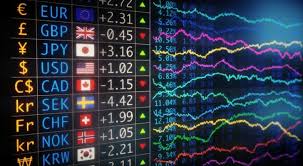
Mastering Forex Trading with Simulators
In the fast-paced world of Forex trading, the ability to make informed decisions quickly is paramount. This is where Forex trading simulators come into play. They offer traders a risk-free environment to practice and hone their strategies before committing real money. The advantages of using a simulator are numerous, allowing both beginners and seasoned traders to refine their skills without the fear of losing capital. For those looking for guidance, forex trading simulator Trading Brokers in Turkey provide valuable resources to enhance the trading experience.
What is a Forex Trading Simulator?
A Forex trading simulator is a software or platform that replicates real-time market conditions, enabling users to trade virtual currency. Traders can practice buying and selling currencies using simulated funds, allowing them to experiment with different trading strategies. The key features of a Forex trading simulator include live price feeds, extensive charting tools, and a full suite of technical analysis indicators.
Benefits of Using Forex Trading Simulators
Utilizing a Forex trading simulator comes with several benefits, particularly for novices who are just starting their trading journey:
- Risk-Free Environment: Simulators allow traders to experiment with various strategies without risking real money. This encourages exploration and learning.
- Learn the Mechanics: New traders can familiarize themselves with market mechanics, order types, and trading platforms without the pressure of real-time trades.
- Develop Strategies: Traders can test and refine their strategies based on market movements and historical data.
- Improve Decision Making: By practicing under pressure and in different market conditions, traders can enhance their decision-making skills.
- Real-Time Experience: Many simulators offer real-time market data, allowing users to understand and react to market fluctuations as they would in a live scenario.

Choosing the Right Simulator
Selecting the right Forex trading simulator is crucial for maximizing its benefits. Here are some factors to consider:
- User-Friendly Interface: Look for simulators with an intuitive interface that allows for easy navigation and operation.
- Market Analysis Tools: A good simulator should offer a range of analysis tools, including advanced charting options and technical indicators.
- Variety of Currency Pairs: Ensure that the simulator offers a wide array of currency pairs to practice on, allowing you to broaden your experience.
- Community Support: Platforms with active user communities provide valuable insights and support.
- Compatibility: Check if the simulator is compatible with mobile devices for on-the-go practice.
Best Forex Trading Simulators Available
There are several notable Forex trading simulators available in the market today. Below are a few that stand out:
- MetaTrader 4 (MT4): One of the most popular trading platforms globally, MT4 offers a robust demo account that simulates real-market conditions with access to a wide range of analysis tools.
- cTrader: Known for its user-friendly interface and advanced trading features, cTrader provides a demo account that closely mimics real trading environments.
- NinjaTrader: This platform is ideal for more advanced users, offering extensive market data and analytics alongside a solid simulation environment.
- TradingView: While primarily a charting tool, TradingView allows users to create simulated trades based on real-time data, providing an excellent way to practice without financial risks.
- Thinkorswim: Offered by TD Ameritrade, this platform provides a powerful simulation environment with a strong focus on technical analysis and market research tools.
Strategies to Practice Using Simulators
Once you’ve chosen a simulator, the next step is to develop and practice trading strategies. Here are some strategies to consider:
- Scalping: This strategy involves making small profits on numerous trades throughout the day. Use the simulator to find the right timings for entering and exiting trades.
- Day Trading: Focus on buying and selling currency pairs within one trading day. Practice identifying trends and making timely decisions under pressure.
- Swing Trading: This strategy capitalizes on price swings over several days or weeks. Use the simulator to test how well you can predict market movements over time.
- Position Trading: Longer-term trades require patience and a deep understanding of market analysis. Practice developing an outlook based on economic indicators and trends.
Evaluating Your Performance
To get the most out of your trading practice, it’s essential to track and evaluate your performance. Here’s how you can effectively assess your trading activities:
- Keep a Trading Journal: Document each trade’s details, including currency pairs, entry and exit points, and the reasoning behind each trade. This practice will help identify patterns in your decision-making.
- Review Your Trades: After every practice session, analyze your successful and unsuccessful trades. Look for trends in your decision-making and outcomes.
- Adjust Strategies: Based on your performance evaluations, don’t hesitate to refine or alter your trading strategies. Simulators offer a perfect opportunity for continuous learning.
Conclusion
Forex trading simulators are invaluable tools for anyone looking to improve their trading skills. By providing a risk-free environment to practice and develop strategies, they enable traders to gain confidence and proficiency. Whether you are a complete novice or a seasoned trader seeking to refine your approach, incorporating a trading simulator into your routine is crucial. Explore different simulators, practice diligently, and continuously evaluate your performance to ensure that you are on a path toward successful Forex trading.
